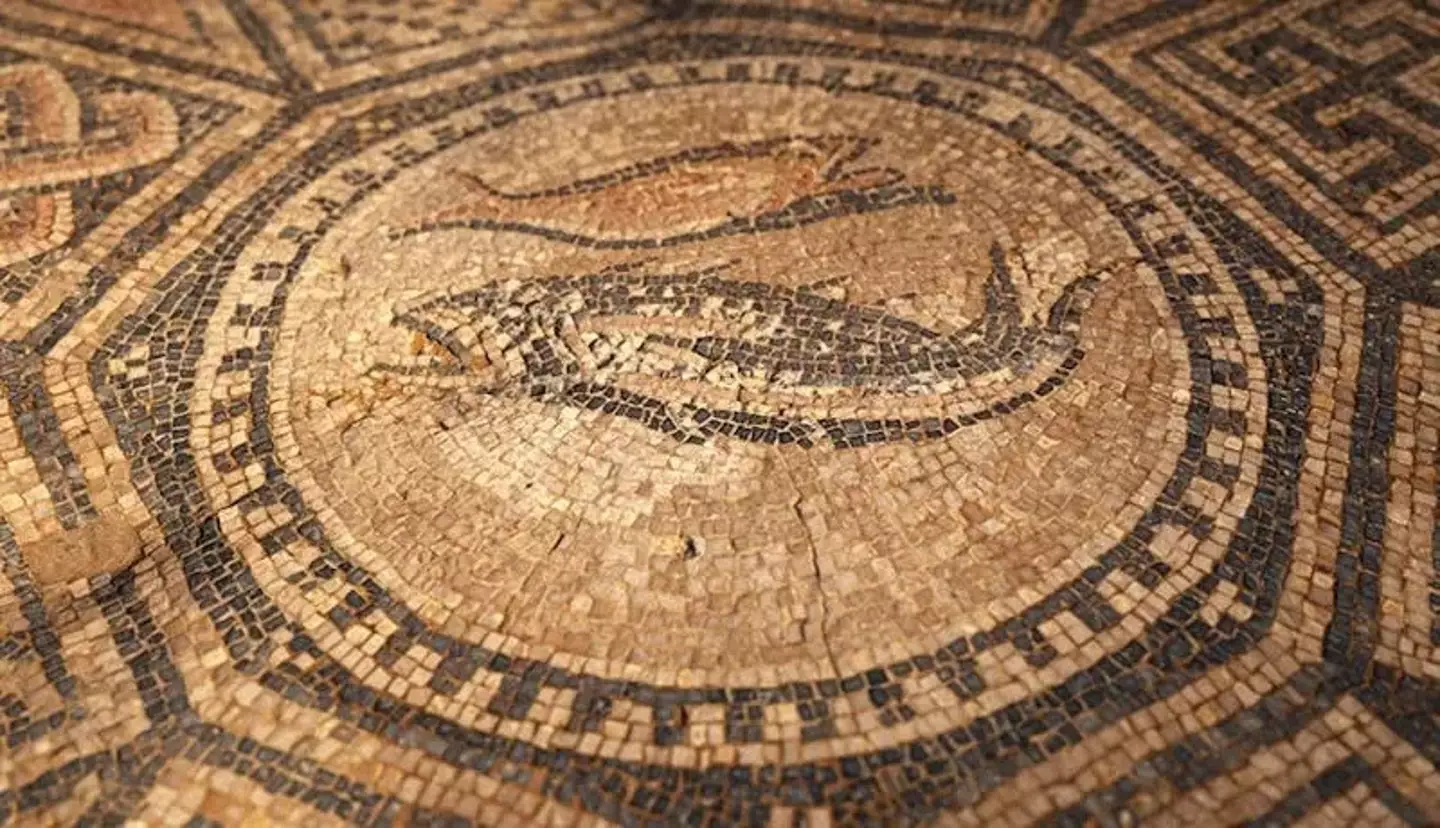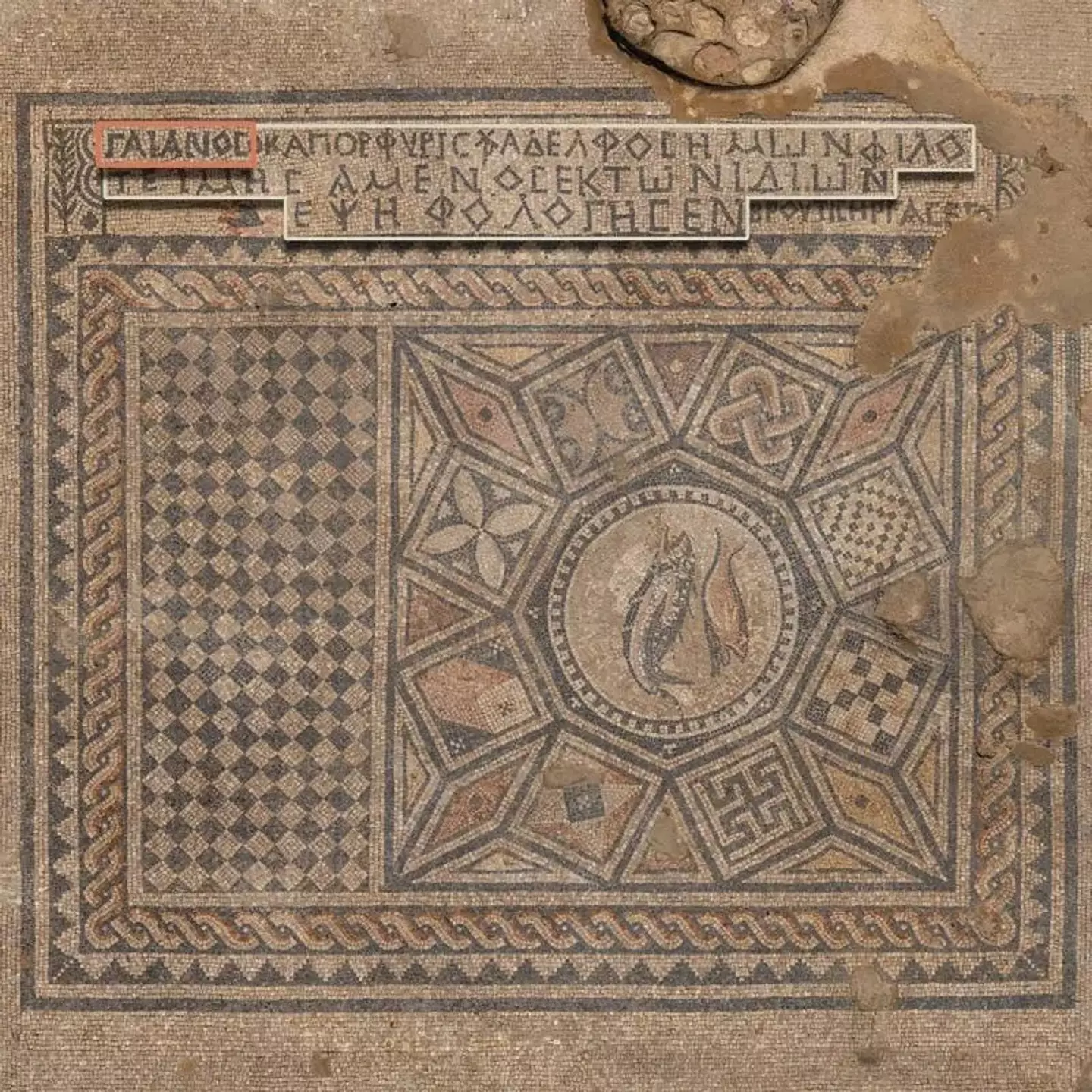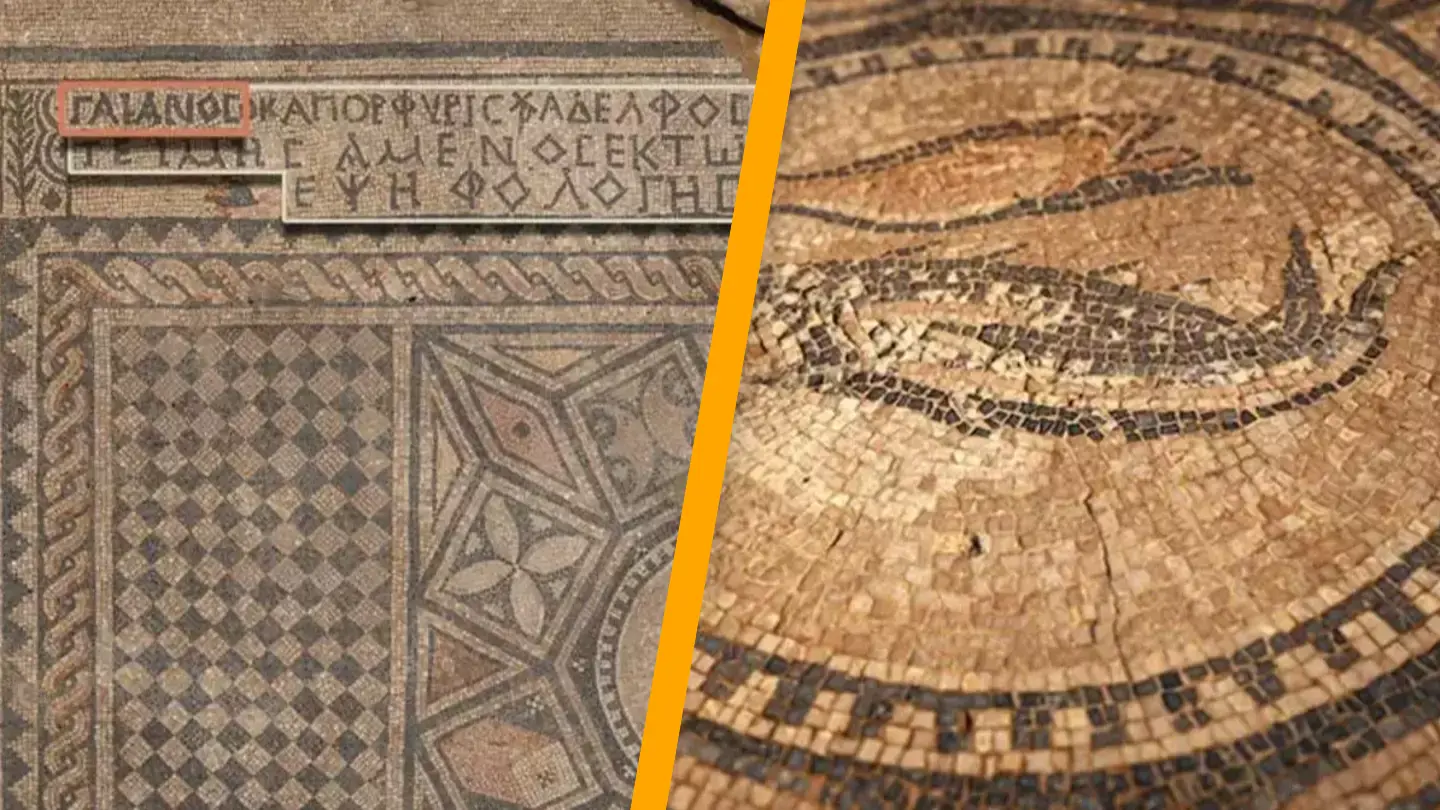Archaeologists have uncovered what is being hailed as the most significant find since the Dead Sea Scrolls, potentially altering our comprehension of historical narratives.
Specialists are captivated by the earliest inscription proclaiming ‘Jesus is God.’ This discovery challenges long-held beliefs about the origins of Christianity.
This inscription, which dates back 1,800 years, has been described by Carlos Campo, CEO of the Museum of the Bible in Washington D.C., as ‘the greatest discovery since the Dead Sea Scrolls.’
According to the Jewish News Syndicate (JNS), Campo introduced the mosaic during an opening event in September, with the piece dating to around 230 AD.
“Frankly, I’m still stepping back, because as I step back, I learn more about the power of this object and what it’s trying to say to me about ancient history, about the history of Christianity, about the place in Israel and so much more,” Campo stated.

“This object really is a way for us to come together—a way for us to see that these tiny little tesserae, these tiny little chips, these beautiful pieces when placed together—they tell a remarkable story of unity,” he added to those in attendance.
“We truly are among the first people to ever see this, to experience what almost 2,000 years ago was put together by a man named Brutius, the incredible craftsman who laid the flooring here.”
Initially discovered beneath the floor of Meggido Prison in Israel in 2005, the Israel Antiquities Authority later divided the artifact into smaller segments.
The Daily Mail notes that the Greek inscription on the mosaic reads: “The god-loving Akeptous has offered the table to God Jesus Christ as a memorial.”
Gil Lin, leader of the Megiddo Regional Council, called this the ‘first physical proclamation of Jesus Christ as God.’

Alegre Savariego, involved with the exhibition, shared a similar perspective, noting: “The mosaic presents groundbreaking physical evidence of the practices and beliefs of early Christians, including the first archaeological instance of the phrase, ‘God Jesus Christ’.”
JNS reports that this artifact presents the phrase well before Christianity was officially embraced by the Roman Empire.
Director of the Scholars Initiative at the Museum of the Bible, Bobby Duke, remarked: “This is arguably one of the most important archaeological discoveries for understanding the early Christian church.”
“The mosaic truly offers a wealth of new data for church historians.”
Findings from experts indicate that, contrary to the historical narrative of conflict, Romans and Christians may have coexisted more harmoniously than previously thought.

